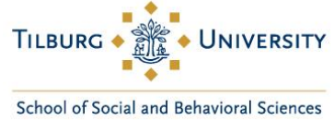This event is part of an IHRM Webinar Series, organized by the Centre for Global Workforce Strategy at Simon Fraser University (Canada), the Center for International Human Resource Studies at the Pennsylvania State University (USA), Pennsylvania Western University (USA), ESCP Business School and RIT Croatia (Europe).
About this event
Time is an essential and classic, yet underdeveloped issue in IHRM studies. However, time has an often long and distinguished pedigree in a number of scientific disciplines such as philosophy, physics, sociology, psychology, and organization studies. They constitute rich sources of inspiration and refreshment for the field of IHRM. From these sources, crucial general anchor points emerge that lead to yardsticks for the degree of time-sensitivity of IHRM research. They point us towards specific routes for enriching our studies with temporal aspects that allow a more comprehensive and in-depth view on the phenomena IHRM is dealing with.
After briefly diagnosing the current situation in terms of time and IHRM studies, this webinar focuses on outlining the general anchor points and specific yardsticks for more time-sensitive IHRM research. It closes with major calls for the field of IHRM to further develop in this area.
Speakers
- Wolfgang Mayrhofer Full Professor and head of the Interdisciplinary Institute of Management and Organizational Behaviour, WU Vienna, Austria.
- This session will be moderated by Marion Festing, Professor of Human Resource Management and Intercultural Leadership at ESCP Business School’s Berlin campus
Date: 23 February 2023.
Time: 5:30 p.m. – 6:30 p.m. CEST (Vienna, Berlin, Paris, Zagreb)
More information & registration here. This event will be hosted virtually on Zoom. Event access links will be provided 24 hours prior to the event start.
No fee.
Inquiries: beedie-events@sfu.ca
Previous installments of the IHRM Webinar Series are available online at our YouTube Channel.









